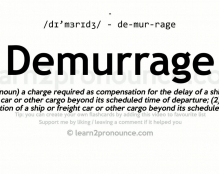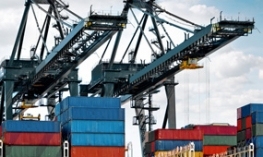Shipping lawyers have been following the Eternal Bliss case since the Commercial Court in 2020 decided that a ship owner could claim demurrage and other general damages for delayed cargo discharge – in that case, reimbursement of monies payable to cargo interests due to deterioration of a soya bean cargo whilst the Vessel waited to berth and discharge.
The customary view amongst shipping law practitioners was that demurrage – being a form of agreed liquidated damages – was an owner’s only damages entitlement for delayed cargo ops/discharge. However, the Commercial Court reviewed the authorities and concluded that damages could be recovered by an owner, in addition to demurrage, even if the only breach of contract by the charterer was delay, provided that the type of damage suffered by the owner was entirely different in nature to demurrage (which in the Eternal Bliss case was the position, the ‘other’ loss suffered by the Owner being cargo damage liability).
The case was recently appealed to the Court of Appeal which has completely reversed the decision of the Commercial Court. The Court of Appeal has decided that unless otherwise defined in the charterparty ‘demurrage’ is understood to have a very wide meaning in law/shipping practice and includes all losses that an owner suffers, of whatever kind, due to delayed cargo operations/discharge. So, where demurrage is agreed to be paid as liquidated damages for a charterer exceeding laytime (as is almost always the position under a voyage charter), that agreement is deemed to be in respect of any kind of loss suffered by the owner from the delay, not just freight earning losses.
Parties remain free to define demurrage in a charterparty such that it is limited to a particular type of loss – but in practice that rarely happens and is unlikely to be agreed by most charterers when fixing. An owner can also bring a claim for damages other than demurrage if it can demonstrate a breach of some other obligation which has caused the ‘other’ loss, which is not just failure to meet the laytime requirement; but that, also, is not necessarily easy to do as in most instances the only actionable fault by the charterer is the delay.
The owners have applied for leave to appeal to the Supreme Court so this saga might not be over yet but for the time being the status quo has been reinstated by the Court of Appeal, to the benefit of charterers.
Full case reference: K Line PTE Ltd v. Priminds Shipping (HK) Co Ltd (Eternal Bliss) [2021] EWCA Civ 1712.


